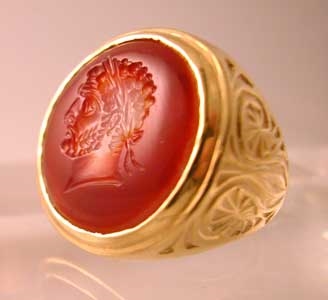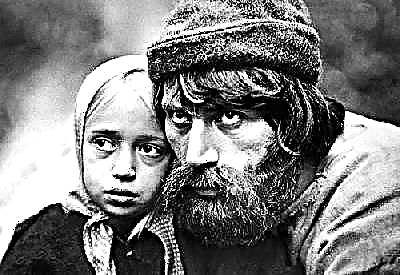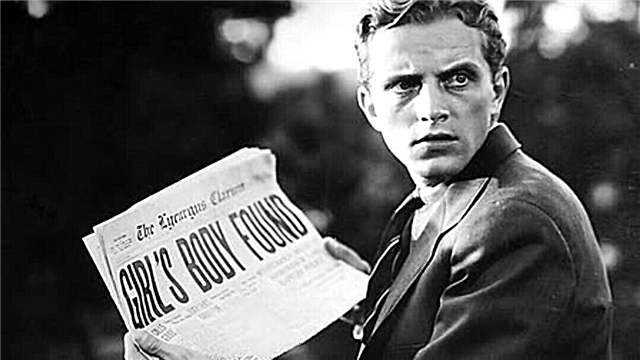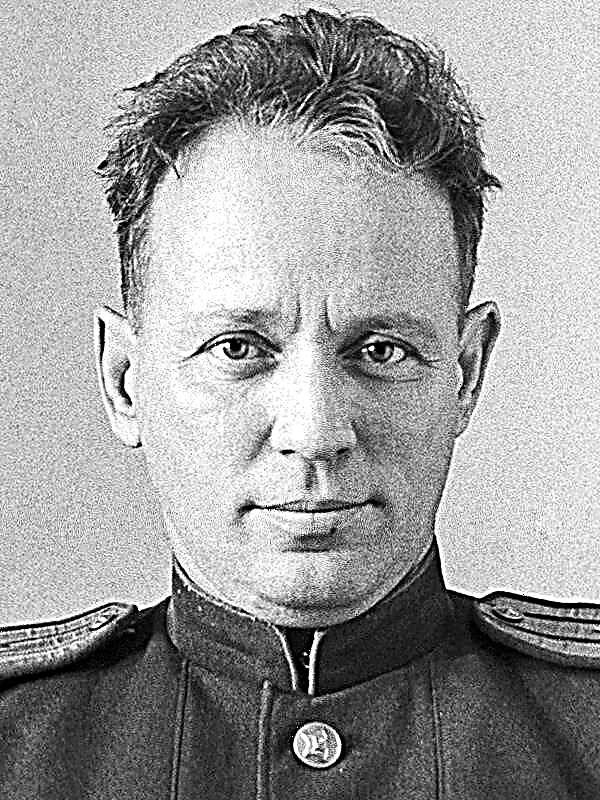March 14, 1828 a cannon shot from the Peter and Paul Fortress residents of the capital were notified of the conclusion of peace with Persia. A treatise on peace was brought from the main apartment of the Russian army in Tehran by college adviser Griboedov. At a reception with the emperor, Griboedov was awarded the Order of Anna of the second degree with diamonds and four thousand chervontsy, which he immediately gave to his mother Nastasya Fedorovna, a selfish hank. Griboedov is indifferent to what is happening, he is dry and "yellow, like a lemon." Alien to everyone, he maintains friendships only with “the funniest of all the literary bastards” Faddey Bulgarin, which does not prevent him, however, from having a love affair with Thaddeus’s wife, Lenochka.
Griboedov developed the project for transforming the Transcaucasus not by force of arms, but by economic means, proposed creating a single society of capitalist producers there. He seeks support from Foreign Minister Nesselrode and Director of the Department Rodofinikina. At the same time, Dr. McNeill, a member of the English mission in Tabriz, leading his intrigues in Persia, manages to visit Rodofinikin. A letter is sent through Maknil Griboedov from Samson Khan, formerly the Wahmister Samson Makintsev, who took Islam into captivity and led the Russian battalion that participated in the war on the Persian side. Samson Khan, along with other "voluntary prisoners," does not want to return to his "former homeland."
After an audience with Nicholas I, Griboedov is appointed plenipotentiary minister of Russia in Persia and is elevated to the rank of state adviser. His project is hidden in a long box. At a dinner with Bulgarin, Griboedov reads excerpts from his new tragedy, talks with Pushkin. Quick and successful Pushkin, despite his goodwill, causes irritation in Griboedov. With a feeling of resentment, the poet-diplomat leaves Petersburg, realizing that, having instructed him to receive indemnity from the Persians (“Kururs”), the government sends him “to be eaten”.
Griboedova is accompanied everywhere by the servant Sashka, Alexander Gribov. In Yekaterinograd, they are joined by Maltzov and Dr. Adelung, appointed to the secretaries of Griboedov. In Tiflis, Griboedov meets his fiancée, Nina Chavchavadze, and receives a blessing for marriage from her parents. At this time, a consolidated guards regiment comes here with trophies from Persia, consisting of many participants in the uprising on Senate Square in 1825. Two officers talk about Griboedov, whom they saw on the terrace “in a dressed uniform,” and one of them condemns the author “ Burning from the mind ", which, in his opinion," reached the degrees known ".
In the Caucasus, Griboedov visits the Commander-in-Chief Count Paskevich, who submits the Griboedov project for review to the exiled Decembrist Burtsev. But, alas, this liberal does not support his former like-minded person: “For the reason that you want to create a new money aristocracy <...> I will destroy your project in every way.” Griboedov suffers a severe fever, and then receives the highest command to leave Tiflis. He marries Nina and leaves with her for Persia, where he will henceforth be called Wazir-Mukhtar in accordance with his high rank.
Having taken up a new position, Griboedov faces serious difficulties. War-ravaged Persians are unable to pay kururs. Paskevich, suffering in the Caucasus, demands the withdrawal of Russian subjects from Persia. Leaving Nina in Tabriz, Griboedov goes to Tehran, where he appears to the Persian Shah. Living in a beautiful house, appropriate to his rank, Wazir-Mukhtar is increasingly feeling loneliness and anxiety. Servant Sasha is brutally beaten in the market. Griboedov gives shelter to two women from the Caucasus, once abducted by Persians and now fleeing the harem. The eunuch Khoja-Mirza-Yakub, an Armenian by origin, a former Russian citizen, also finds refuge in the Russian embassy. All this causes an acute hostility to Wazir-Mukhtar from the side of Sharia adherents. With the tacit consent of the shah, they declare a holy war - "jahat" to the hated "kafir with glasses." Griboedov instructs Secretary Maltsev to draw up a note on the insecurity for Russian citizens of their continued stay in Tehran. On the night of January 30, 1829, he had a conversation “with his conscience, as with a man” - about unsuccessful service, about “failure” in literature, about his pregnant wife awaiting him. Griboedov is ready for death and convinced that he honestly performed his duty. He falls asleep in a calm and deep sleep.
An ominous and noisy crowd is approaching the house of Wazir-Mukhtar: mullahs, blacksmiths, merchants, thieves with severed hands. Griboedov commands the Cossacks, but manages to keep the defense short. The savage fanatics kill Khoja-Mirza-Yakub, Sasha, Dr. Adelung. Only the cowardly secretary Maltsev manages to survive by bribing the Persian guards and hiding in the folded carpet.
Wazir-Mukhtar was torn to pieces by people who consider him guilty of wars, famine, oppression, and crop failure. His head is mounted on a pole, the body is dragged for three days through the streets of Tehran, and then thrown into a cesspool. Nina at this time in Tiflis gives birth to a dead child.
Prince Khozrev-Mirza arrives in St. Petersburg to settle the incident with the precious Nadir Shah diamond as a gift to the emperor. The ill-fated Tehran incident is committed to eternal oblivion. The Russian government only requires the surrender of the body of Wazir-Mukhtar. "Griboeda" is searched in a ditch among the corpses, they find the body of a one-armed man, put a hand with a ring. "Griboed turned out." In a simple wooden box, the body is transported on a cart to Tiflis. On the way, the arbu meets a horse in a cap and a black cloak - this is Pushkin. "What are you carrying?" “The Griboeda.”












